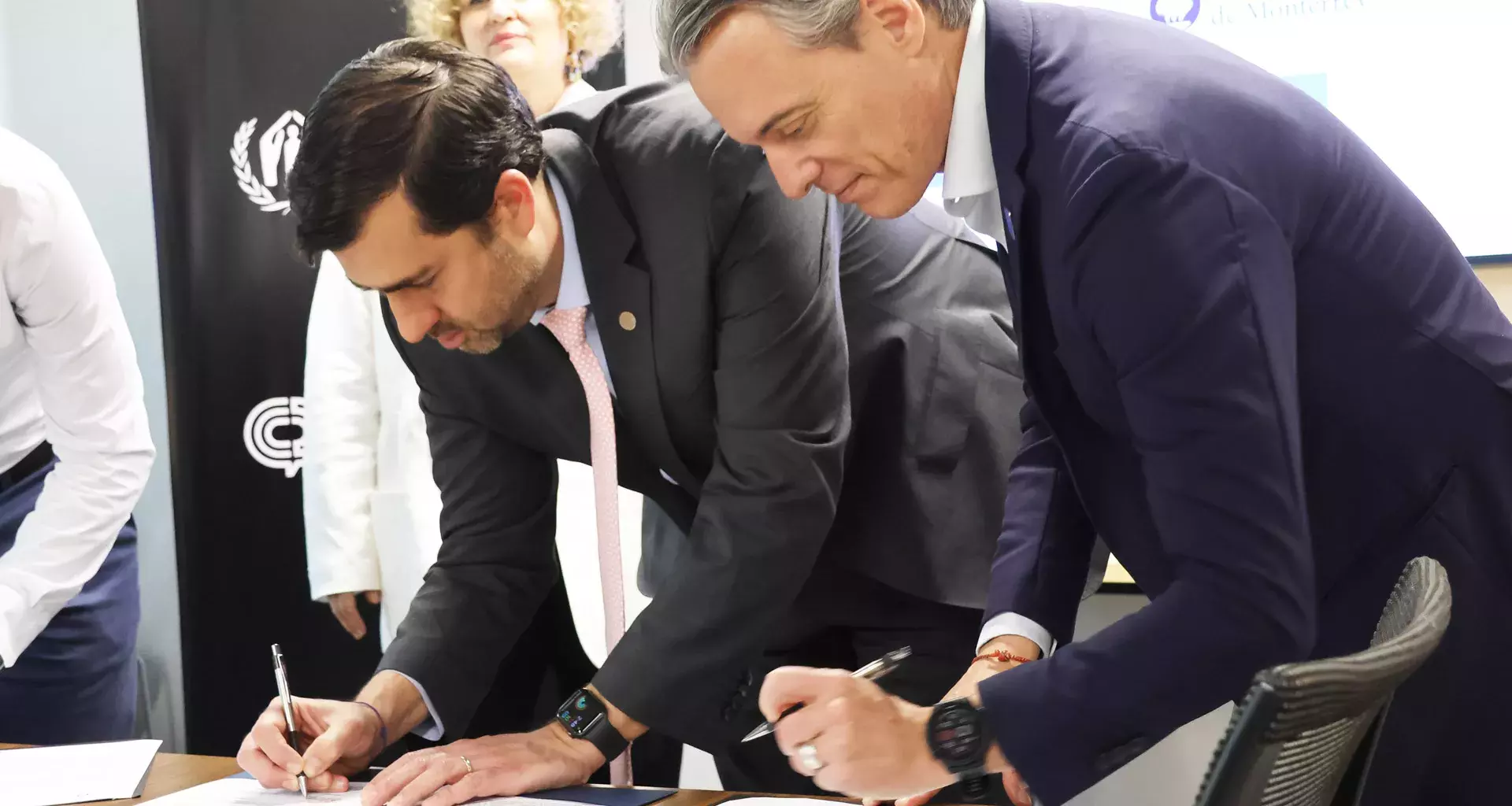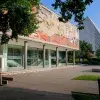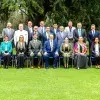Tecnológico de Monterrey and the United Nations Refugee Agency (UNHCR) have signed a two-year renewal of their commitment to continue academic activities, training, and social inclusion for refugees.
This renewal includes supporting the humanitarian assistance processes of refugee applicants, those with refugee status, and stateless people (those who are not recognized as citizens of any country) in Mexico.
Present at the signing were Juan Pablo Murra, Rector of Tec de Monterrey; Inés Sáenz, Vice President of Inclusion, Social Impact, and Sustainability at the Tec; and Giovani Lepri, UNHCR representative in Mexico.
“There is a lot of ignorance today, which fuels a negative narrative around refugees. That’s why it’s important to recognize the work and collaboration between civil society and academia to provide a holistic response,” Murra said.
“This is a great moment for us at Tecnológico de Monterrey (...) In addition to formally continuing a collaboration agreement with UNHCR, this is about putting human dignity at the heart of our proposals and projects,” said Sáenz.
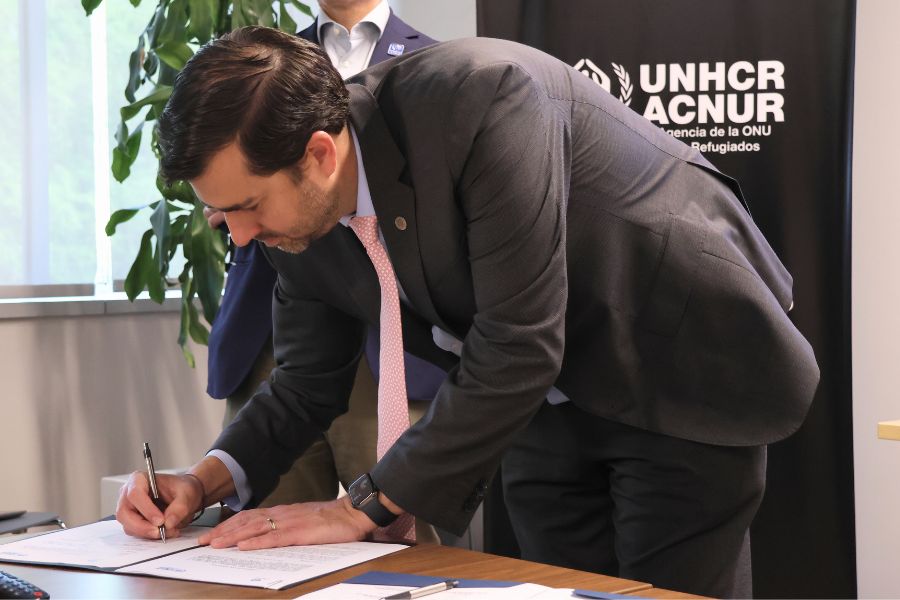
Social transformation under a joint strategy
The signing of the renewal took place on April 3 at the Rector’s Office on the Monterrey campus.
According to Lepri, since the beginning of the collaboration in 2023, the strategy between the institutions has been based on a vision of innovation, recognizing the university’s academic excellence and transformative inclusion.
“We have to start from an academic perspective, since academia has a foundation that helps us change negative narratives and counter them with data, evidence, and action,” he said during the gathering.
The following areas and axes have been identified in the collaboration agreement in order to maintain joint synergy:
- Community service
- Work placements
- Awareness-raising and immersion projects (TEC Week)
- Revalidation of qualifications (according to education policy and legislation)
- Legal action clinic (BUFETEC).
- Educational, economic, labor, social, environmental, and cultural inclusion (according to their relevance to the Tec)
- Health and wellbeing inclusion (according to its relevance to the Santos y De la Garza Evia Foundation)
- Incorporating subjects, topics, and/or content corresponding to international refugee law and international protection
- Making admission mechanisms, policies, and procedures more flexible (according to legal provisions)
- Academic research
- Dissemination of educational opportunities, with an emphasis on PrepaNet
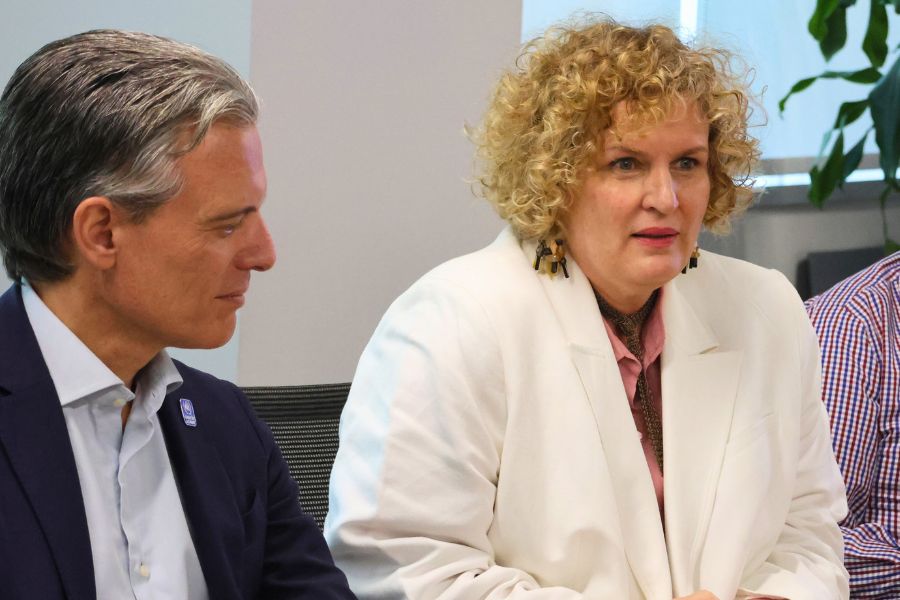
Here are some of the standout actions of 2023-2024
Claudia Sepulveda, National Officer for Durable Solutions at UNHCR Mexico, also took the opportunity to highlight how the achievements of this first phase of the agreement have come about thanks to the collaboration agreement with the Tec.
More specifically, the efforts of the university’s Center for the Recognition of Human Dignity team were recognized, including members such as Nayeli Ramírez, Natalia Moreno, and Laura Arévalo.
Some of the projects and actions between 2023-2024 that were highlighted during the session included:
- Network of legal clinics
This is a legal clinic project serving the mobile population at Tec de Monterrey through a multi-campus strategy (with Guadalajara as the hub alongside the Monterrey and Puebla campuses).
Effective until 2025, this project stands out as a learning space for university students that aims to address the legal needs and integration of refugees.
Similarly, it seeks to strengthen the response capacity of relevant stakeholders in the field of migration and mobility in Mexico and to influence a human rights-based approach to migration governance.
This network has impacted 56 students and 303 people in the mobile population.
In the Monterrey block, documents have also been produced for strategic litigation on financial inclusion.
- Nansen Migration and Refugee Clinic on the Guadalajara campus
This project, developed alongside UNHCR, is supported by hiring a lawyer and participating in a work group made up of civil society organizations, law firms, and other universities.
The goal is to promote better regulatory conditions for protecting the rights of people in situations of international mobility.
22 cases have already been handled and closed at the clinic and there are 24 active cases. Four Tec students are working and carrying out community service there, and 12 other students are also participating.
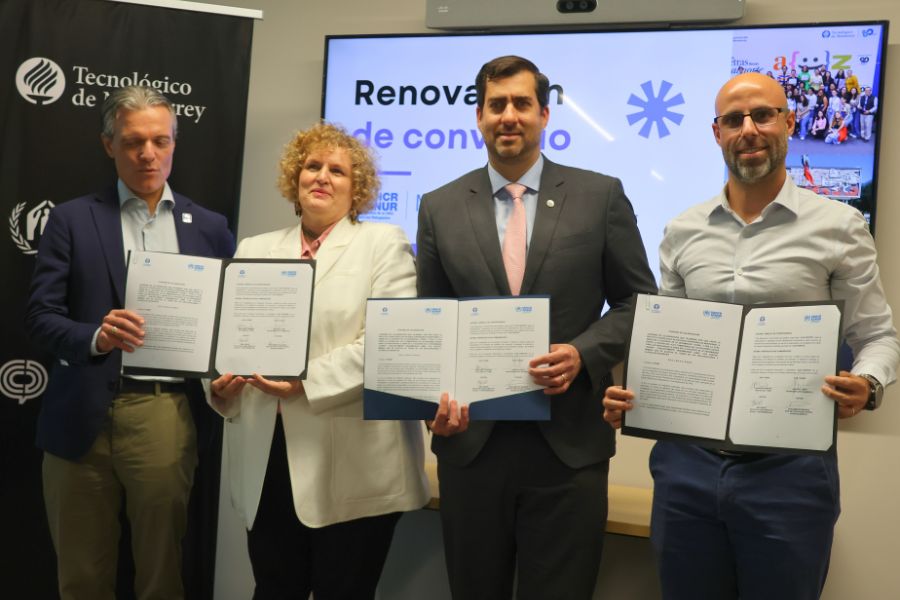
- Tec Week: Me, You, Others, Us
Tec Week aims to develop the social intelligence sub-skill among the student community.
1,377 students have participated, 15 talks have been given, and 45 groups have been created over the course of the experience.
Tec Week is a training unit that seeks to immerse students in activities designed to develop both cross-cutting and disciplinary skills.
- Speech at the International Book Fair (FIL): “Redefining the Monterrey Dream: The Cultural and Social Impact of Refugees on Contemporary Society”
Given by Shant Dermergerditchian, Head of UNHCR’s Sub-Office in Nuevo León, this talk during the Monterrey International Book Fair (FIL) aimed to address issues such as:
- The influence of refugees on today’s culture and society.
- Analyzing how refugees have enriched literature, visual arts, music, and global cultural identity through narratives, inspiring artwork, and more.
- Sharing the challenges they face and their role in promoting diversity, tolerance, and inclusion.
-Other projects and interventions
- Participation in the 2023 APRU Global Health Conference: Equity in Health with a presentation by Rosa Elizabeth García Ita, from UNHCR’s National Community Protection Office, in a plenary session on Equity.
- A space at the Community Service fair to advertise UNHCR’s work to students.
- distritoTec, an urban regeneration initiative launched by the Tec, hosted the “Rhythms in Migration” exhibition, the theme of which was aimed at raising awareness among attendees.
- Screening of the film “The Swimmers” in Jardín de las Carreras on the Monterrey campus. This was based on the true story of two young Syrian women who had to flee to Europe due to the armed conflict in their country.
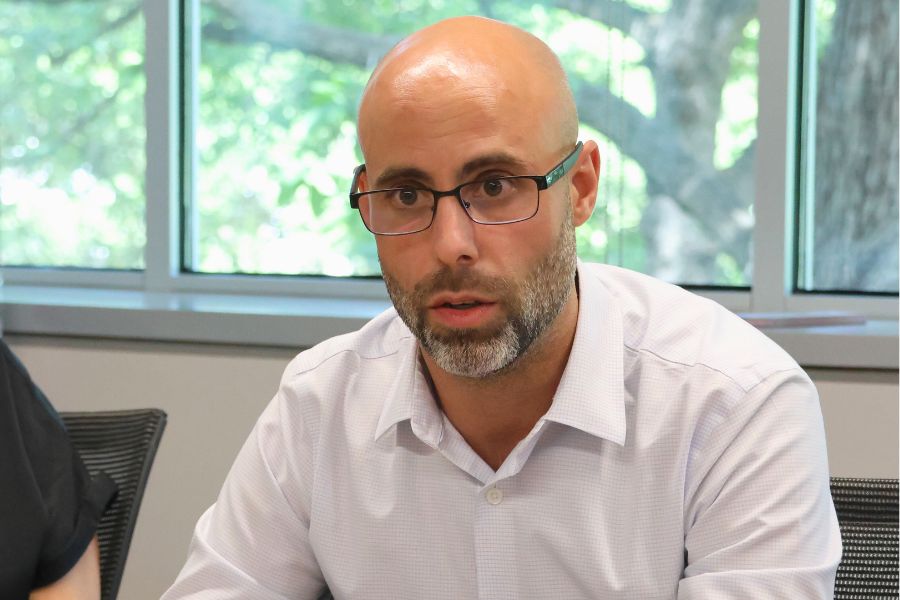
A long-term partnership
While both Murra and Sáenz acknowledged the challenging context in which we live, the renewal of this partnership was perceived as a “joyful beginning” that also served as an opportunity to thank those involved.
After the renewal, Benjamín de Barros, Head of the UNHCR’s Sub-Office in Nuevo León, reaffirmed the importance of this type of alliance between institutions and countries to address global challenges.
“Working with these technical clinics is one of the cornerstones of our field work, and it’s precisely a way to ensure or promote further action and collaboration,” he reflected.
“I think we’re at a good moment right now, given everything that’s happening globally, here and in our neighboring country, to be able to engage students in vocations around this topic.”
With actions such as legal clinics and projects aimed at increasing or expanding knowledge on refugee rights, the Head of the UNHCR’s sub-office in Nuevo León encouraged continued efforts.
Finally, De Barros highlighted Tec’s role as a bridge between actors who are capable of generating a positive impact on people, from the work carried out with UNHCR to raising awareness.
What is UNHCR?
UNHCR, the UN Refugee Agency, is an international organization dedicated to saving lives, safeguarding rights, and building a better future for people forced from their homes by conflict and persecution.
Formally known as the Office of the United Nations High Commissioner for Refugees, UNHCR was established by the United Nations General Assembly in 1950, in the wake of World War II.
Today, UNHCR operates in 136 countries, providing lifesaving assistance, including shelter, food, water, and medical care, to people forced to flee conflict and persecution, many of whom have nowhere else to turn.
UNHCR defends the right of displaced people to protection and assistance so they can find a place to call home and rebuild their lives.
Over the long term, UNHCR works with countries to improve and monitor asylum and refugee laws and policies to ensure respect for human rights.
YOU MAY ALSO BE INTERESTED IN:

